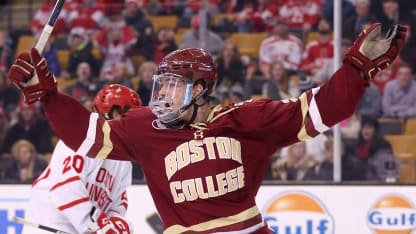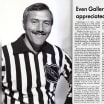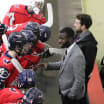WASHINGTON -- Zach Sanford had heard recruiting pitches before.
The Washington Capitals rookie forward was at Pinkerton Academy in New Hampshire in 2013 when Boston College coach Jerry York convinced him to choose that school rather than the University of New Hampshire.
In July, Sanford had to make another difficult choice, between staying at Boston College for another year, which would have made him eligible to become an unrestricted free agent next summer, and turning pro. This time the Capitals, who selected him in the second round (No. 61) of the 2013 NHL Draft, were the ones doing the recruiting.
Zachary Sanford, Jimmy Vesey happy with NHL choices
Sanford left college early to sign with Capitals, Vesey stayed and joined Rangers as free agent


© Billie Weiss/Getty Images

















